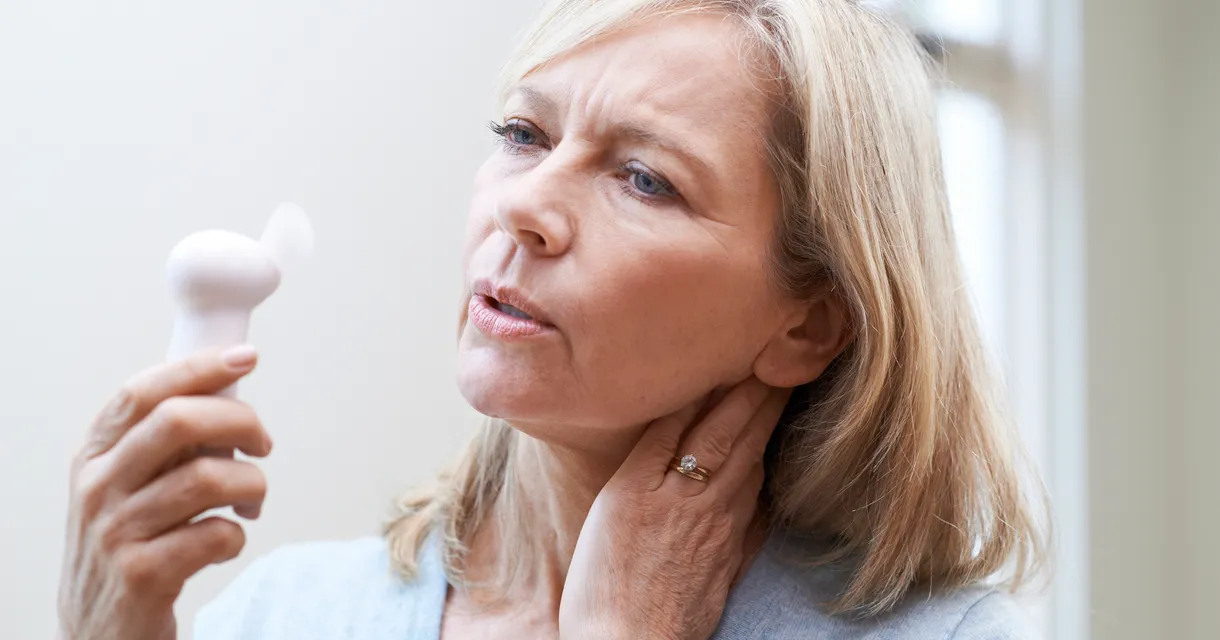Menopause is a process that every woman goes through where the body gradually stops producing oestrogen eventually resulting in no periods and women can no longer become pregnant by natural means.
Although menopause is something that every woman will experience in their lifetime, it’s important to note that everyone’s experience can be different when it comes to the length, the severity of symptoms and the age at which it begins. The information here is a guide based on facts from the NHS and studies around menopause to offer advice on when you may expect menopause in your lifetime and how long it can last on average.
It’s important to note that some people may experience menopause differently whereby it begins prematurely and others may experience sudden and more severe symptoms as opposed to the usual gradual stages. It’s always recommended to consult a doctor when symptoms occur to ensure you get the right support and advice.
A timeline of your menopause symptoms
To understand the timeframe of menopause, it’s important to be aware of the three stages: perimenopause, menopause and postmenopause.
Perimenopause
Many people confuse menopause with perimenopause, however, perimenopause is the transition period into menopause where your body produces less oestrogen gradually over time. This period can last for four or even ten years as everyone’s body is different, however, usually, you will only experience symptoms of this decrease in hormones in the final three to five years.
Some of the most common symptoms during this initial phase include:
- Irregular and fewer periods
- Hot flashes
- Night sweats
- Vaginal dryness
Hot flashes are one of the most common symptoms of perimenopause and menopause itself that many women can relate to, which involve sudden extreme heat, sweat and redness for several minutes in the upper parts of your body such as your head, chest and shoulders. Night sweats are similar to hot flashes but occur during the night which can make it difficult to sleep.
Menopause and postmenopause
It’s important to consult with your doctor when you think you are experiencing perimenopause so they can identify once you have gone through the menopause, stopped ovulating completely and have reached the next stage, known as postmenopause. This is usually identified once you have not had a period for 12 months consecutively.
Symptoms during the menopause and postmenopause include those experienced during perimenopause in addition to some more emotional and mental changes:
- Cold flushes
- Other vaginal changes such as dryness, painful sex, low libido, less bladder control
- Emotional changes including depression, mood swings, irritableness
- Sleeping problems including insomnia
- Heavier or lighter periods
- Breast tenderness or soreness
- Dry skin, eyes and mouth
- Focus and memory issues
- Weight gain
- Hair loss or thinning
- Muscle and joint pain
- Headaches
Postmenopause lasts for the remainder of a woman’s life however the symptoms above last between four to seven years on average, gradually becoming less severe and stopping altogether as your hormone levels remain low and the body adapts to this.
How long do menopause symptoms last on average?
The symptoms of menopause and postmenopause last for around four years following your final period, however, there are some further symptoms for around four years before your final period as your body starts to produce less oestrogen.
As you can see from the various phases involved in the overall experience of menopause, the symptoms can last for several years, however, this differs for each person. The longer the period you experience your symptoms, the less severe they tend to be. For those that experience menopause more abruptly, for example, as a result of having ovaries removed, the symptoms may be more intense.
How do you know when menopause has ended?
The final stage of menopause known as postmenopause doesn’t end at any point, as women will be in this phase for the rest of their life. However, the symptoms of postmenopause will become gradually less severe and eventually stop around four to five years after your final period.
What is the average age for menopause to end?
The NHS states that the average age that women experience perimenopause is between 45 and 55, and menopause is usually reached at the average age of 51. However, as mentioned, this differs person by person depending on various factors including genetics or conditions like premature ovarian insufficiency or following certain medical treatments.
Does menopause go away on its own?
Yes, the symptoms of menopause will gradually become easier to manage and less noticeable in daily life around four to five years after menopause and your final period. There are certain ways to make the symptoms of menopause easier to manage including hormone replacement therapy, cognitive behavioural therapy, vaginal medicines and generally maintaining a healthy lifestyle.
Managing your menopause symptoms
It’s important to get advice from your GP if you are experiencing any of the symptoms mentioned here and are finding them difficult to cope with.
There are various over-the-counter treatments for menopause too that can help to make daily life easier, such as:
- Vaginal treatments including moisturisers, washes, and gels
- Vitamins designed for those experiencing menopause which can help to provide targeted nutritional support and regulate hormone levels
Weldricks Pharmacy stock a wide range of products for those going through menopause including Femarelle’s range of vitamins which are designed for women at various stages of the menopause process to provide the right minerals and nutrients needed to combat certain symptoms.
If you are looking for help easing and managing your symptoms, you can browse our menopause product range today or we’d recommend speaking to your GP for professional advice.
